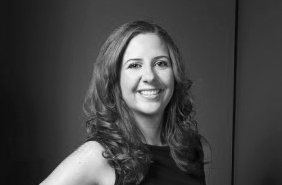
The term “Brain Trust” was coined in the 1930s by a New York Times reporter to describe a group of advisors who provided advice to Franklin D. Roosevelt during his presidential campaign. Today, the term is used more broadly to describe a prized group of advisors who hold expertise in their particular fields. Under that definition it is easy to see that the Energy Futures Lab is indeed one of our province’s greatest brain trusts.
The FSDS is the government’s plan and vision for a more sustainable Canada. It outlines how 37 federal government departments and agencies are working to create a sustainable economy and protect the environment for the next three years.
The EFL brings over 40 fellows together to reimagine the future of Alberta’s energy system. These fellows come from all parts of the energy industry – entrepreneurs developing new technologies, managers from the province’s biggest oil and gas companies, government employees, ENGO representatives, First Nations leaders; the list could go on and on. Each of these individuals brings their own unique lens to addressing our challenges and capitalizing our opportunities.
And that’s why I decided to enlist the EFL brain trust in helping me to advise Canada’s Environment Minister on our nation’s Federal Sustainable Development Strategy (FSDS).
What is the FSDS?
This Spring I was approached by Environment Canada to join their Advisory Committee for the FSDS and represent Alberta in the effort. To give you some context, the Federal Sustainable Development Act was adopted in 2008 and set out a requirement “to require the development and implementation of a Federal Sustainable Development Strategy and the development of goals and targets with respect to sustainable development in Canada.” The FSDS is the government’s plan and vision for a more sustainable Canada. It outlines how 37 federal government departments and agencies are working to create a sustainable economy and protect the environment for the next three years. It also outlines the Government of Canada’s environmental sustainability contributions to the 2030 Agenda, a set of global sustainable development goals.
How was the EFL engaged?
When I started thinking about how to compile my feedback on the strategy, the first thing I decided was that I wanted to be representative and inclusive of diverse viewpoints. Given that I am representing Alberta, it did not seem sufficient to simply submit simply my own recommendations. The EFL was the perfect group to approach to ensure that I had the views of people who look at the system in different ways.
The fellows reside all over Alberta so we chose to engage virtually. I sent the strategy around to the fellowship and the government provided an online webinar explaining the strategy to the fellows. Many individuals provided their feedback to me as well as directly to the public submission portal to ensure it was properly documented and recorded. I also took the feedback and augmented my own recommendations to ensure they represented a more broad view.
What was the outcome?
The fellows helped me to think more deeply about how sustainable development is framed in Canada, how to meaningfully engage labour force, and how to balance the three pillars of sustainable development – social, economic, and environmental. Their advice was incredibly helpful and many of the points they raised are items I will raise directly with Minister McKenna later this month when the Advisory Council meets with her directly.
For those of you who are interested, you can read my full submission here.
This is just one example of how the EFL’s collective knowledge can be mobilized to influence the future of our economic, environmental and social systems in Canada. With technology making diverse viewpoints more accessible, it is my hope that the idea of tapping into brain trusts will become more prevalent in policy and strategy building.

Kali Taylor is the co-founder and Executive Director of Student Energy. She is a member of the Energy Futures Lab’s Steering Committee.



